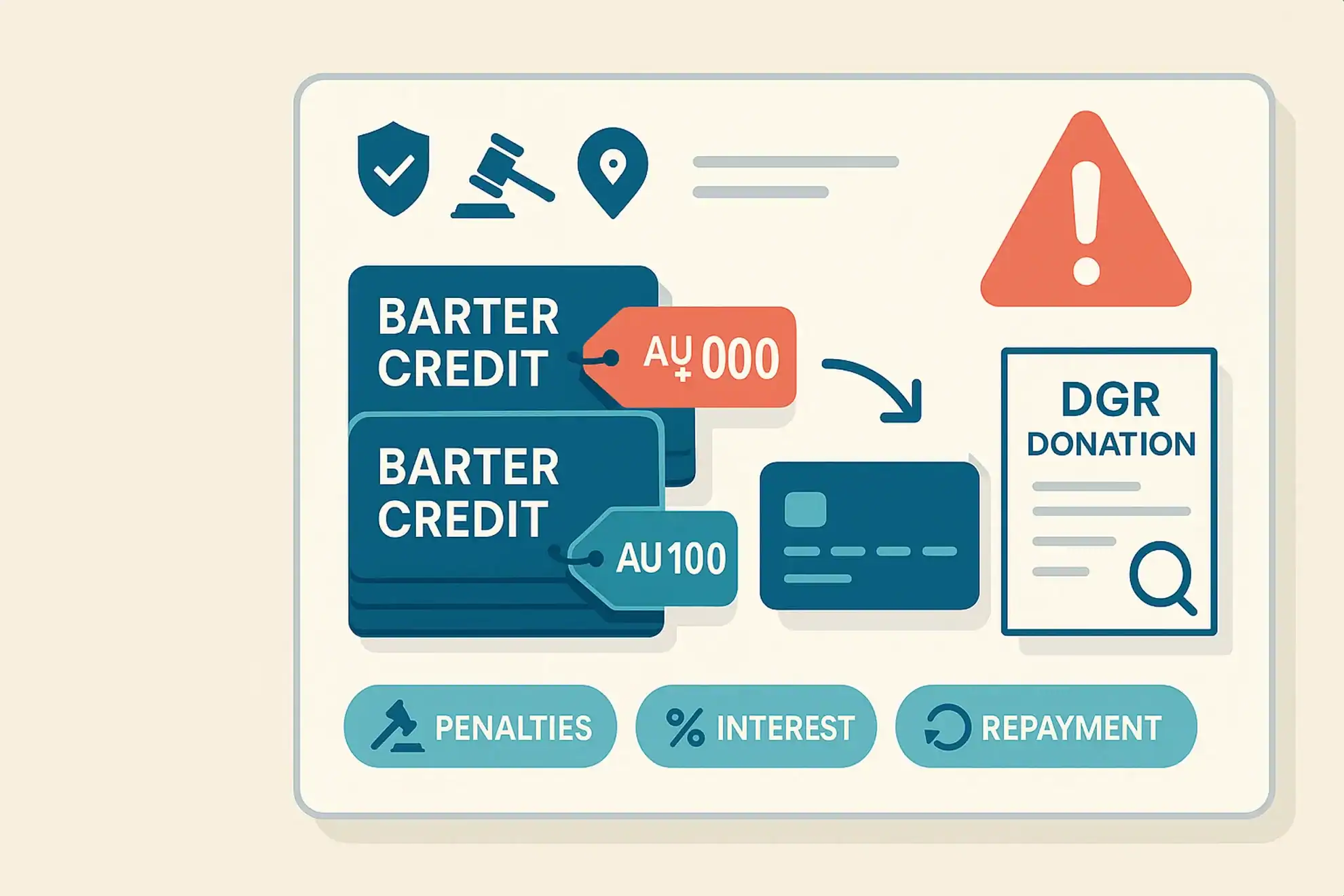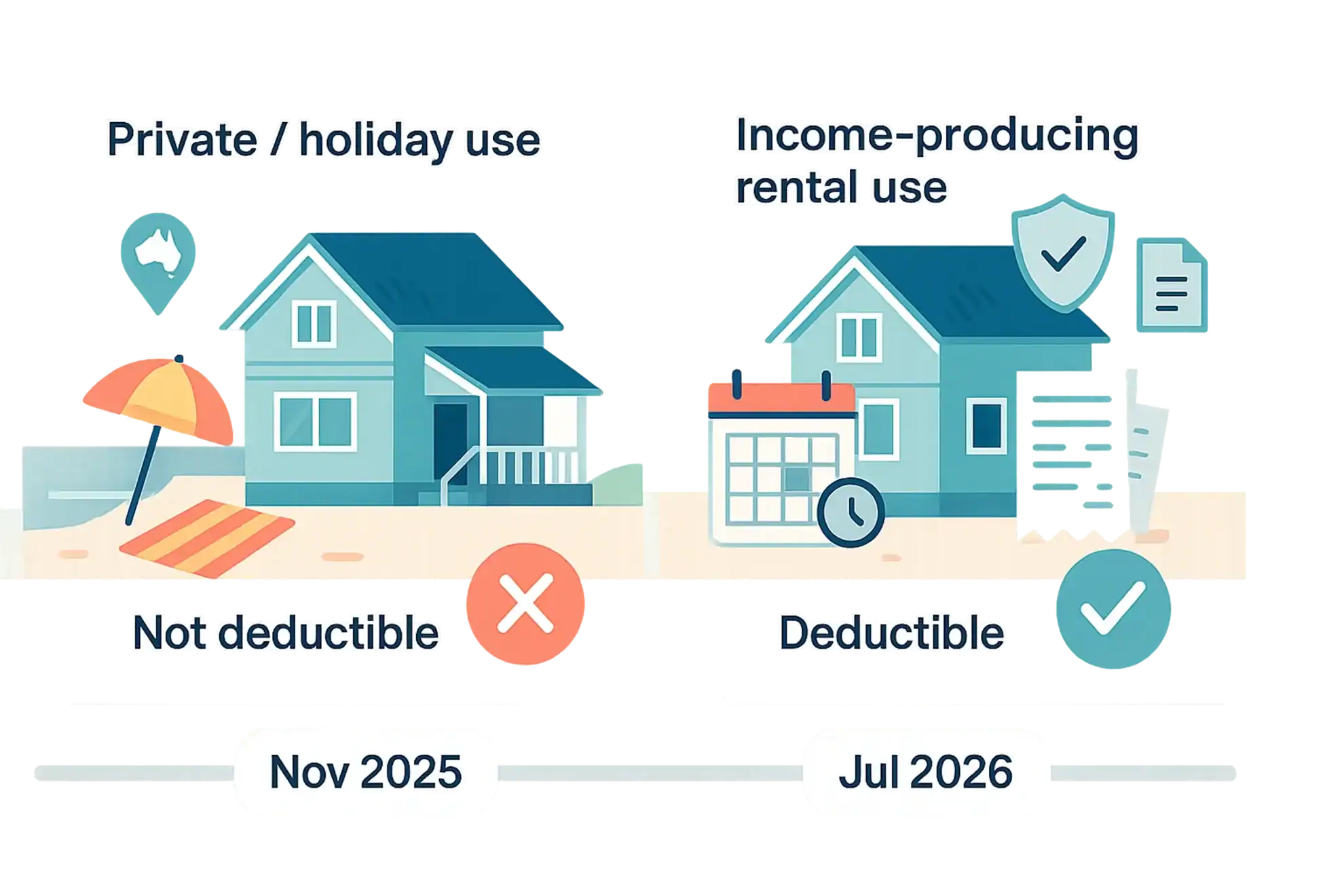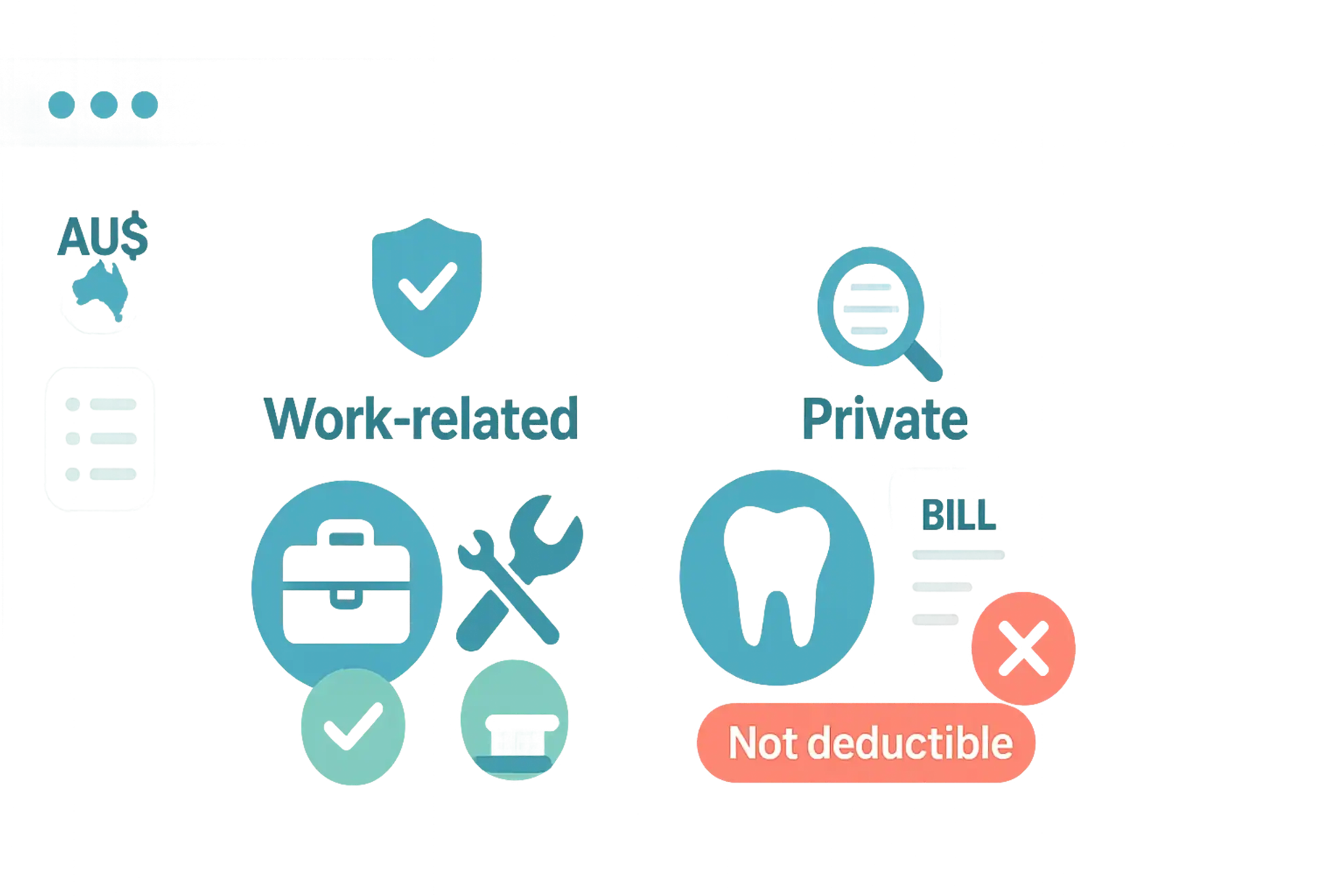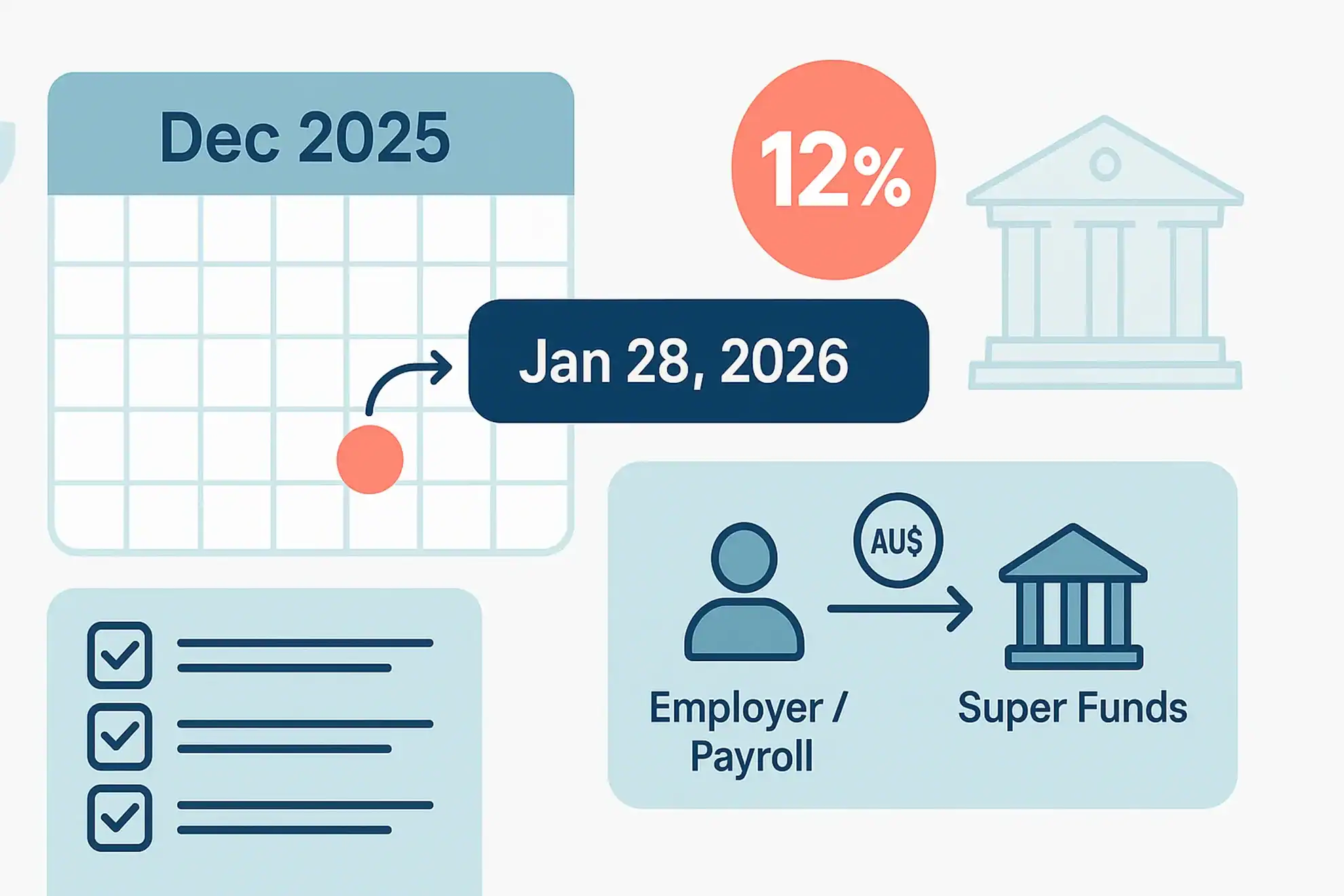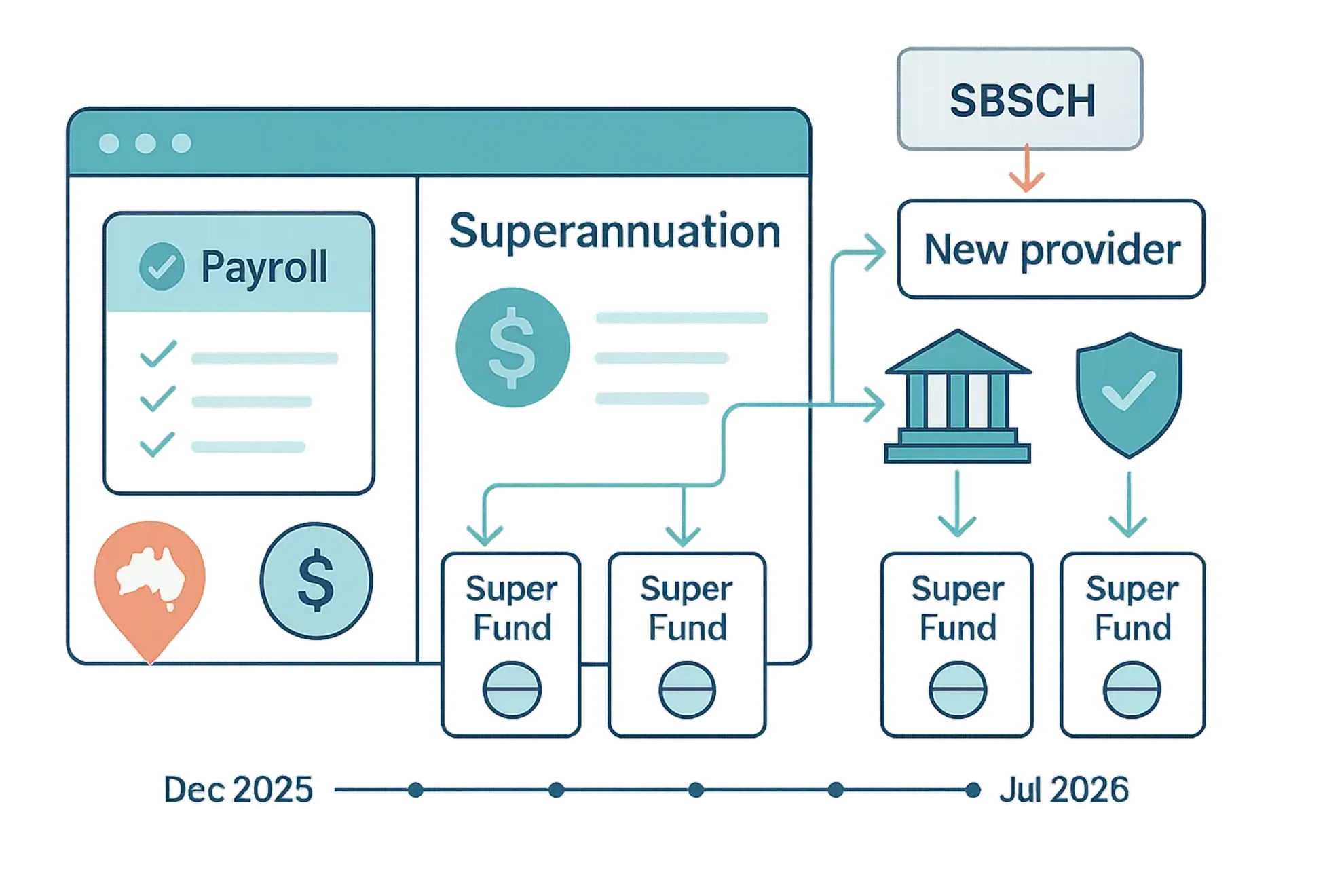Latest News
ATO warns about barter credit tax scheme
The ATO is warning the community to steer clear of an emerging tax scheme involving barter credits — a type of alternative currency used in some business networks. A tax scheme that involves artificially inflating deductions for donations of barter credits to deductible gift recipients (‘DGRs’) is on the rise. While it may seem enticing, […]
ATO’s new approach to holiday home expenses
The ATO has announced that it will take a somewhat different approach in relation to holiday home expenses that are claimed in relation to holiday homes. Broadly, the ATO now takes the view that, if a taxpayer’s rental property is also their holiday home, certain deductions relating to holding it will be completely denied (rather […]
Australians call out tax dodgers in record numbers
The ATO has hit a major milestone of over 300,000 tip-offs from the community about tax dodgers and other dishonest behaviours since 1 July 2019. In the 2024/25 financial year alone, almost 50,000 red flags were raised by members of the community who spotted something suspicious. Most of the tip-offs received related to shadow economy […]
Dental expenses are private expenses
The ATO has been seeing a number of deduction claims for dental expenses this tax time. Dental expenses are private expenses, including preventative and necessary dental treatment, medical expenses and other costs relating to client’s personal appearance (such as teeth whitening, makeup, skin care, shaving products and haircuts) are not deductible. These expenses are generally […]
Reminder of December 2025 Quarter Superannuation Guarantee (‘SG’)
As noted in the previous article, employee December 2025 Quarter Superannuation Guarantee must be received by the relevant super funds by 28 January 2026. If the correct amount of SG is not paid by an employer on time, they will be liable to pay the SG charge, which includes a penalty and interest component. […]
Alternative providers to the SBSCH
Employers should start preparing for the permanent closure of the Small Business Superannuation Clearing House (‘SBSCH’) on 1 July 2026. By acting now to find an alternative service, employers will: have an established process in place to pay super guarantee (‘SG’) for the March and June quarters (if they currently pay quarterly); reduce the risk […]
ATO’s tips for small businesses to ‘get it right’
While the ATO knows most small businesses try to report correctly, it understands that mistakes can happen. The ATO advises taxpayers that it is important to get the following ‘basics’ right: using digital tools and business software to help track and streamline processes to increase the efficiency of their business; keeping accurate and complete records, […]
SMSFs cannot be used for Christmas presents!
There are very limited circumstances where taxpayers can legally access their super early, and the ATO is reminding taxpayers that “paying bills and buying Christmas presents doesn’t make the list.” Generally, taxayers can only access their super when they: reach preservation age and ‘retire’; or turn 65 (even if they are still working). To access […]
Taxpayer’s claims for various ‘home business’ expenses rejected
In a recent decision, the AAT rejected in full a taxpayer’s claims for “several classes or categories of deductions.” For the relevant period of 1 July 2021 to 30 June 2022, the taxpayer was (according to his employer) a ‘technical architect’. However, the taxpayer also claimed he worked from home 6am to 11pm seven days […]
ATO reminder about family trust elections
Taxpayers may be considering whether they should make a family trust election (‘FTE’) for a trust, or an interposed entity election (‘IEE’) for a trust or other entity. Making an FTE provides access to certain tax concessions (assuming the relevant tests and conditions are satisfied), although there are important things to consider. In particular, once […]
CGT withholding measures now law
The Government recently passed legislation making changes to the foreign resident capital gains withholding laws (among other changes). Editor: Foreign resident capital gains withholding is relevant for all vendors selling certain taxable real property (e.g., Australian land). Even Australian residents can be caught by these laws because, if they do not have a valid ‘clearance […]
ATO debunks Division 7A ‘myths’
Editor: The ATO has recently published a document ‘debunking’ various Division 7A ‘myths’. Division 7A of the tax legislation is intended to prevent profits or assets being provided to shareholders or their associates tax free. A payment or other benefit provided by a private company to a shareholder or their associate can be treated as […]

